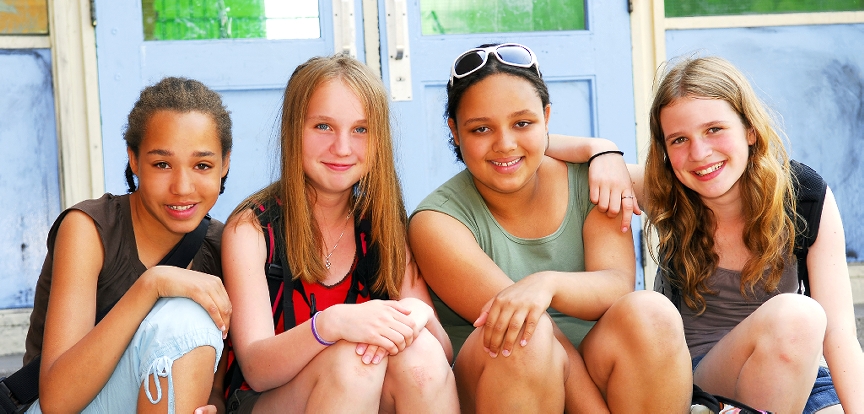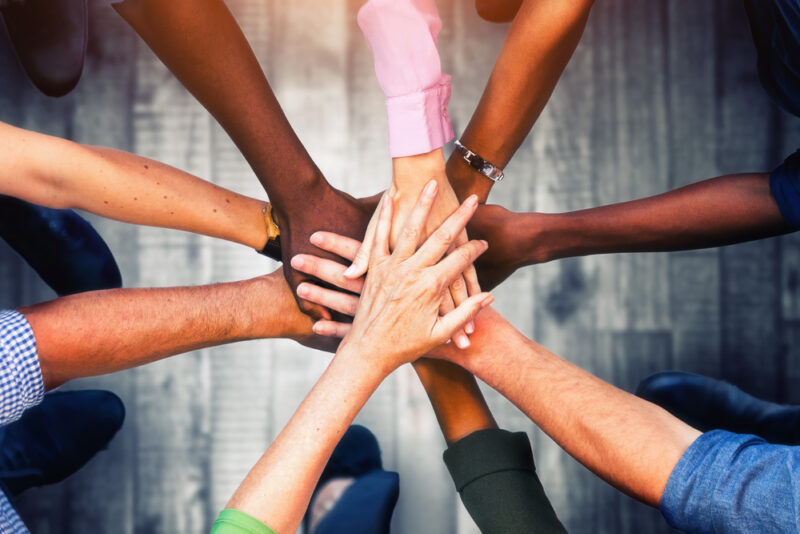International Women’s Day has new meaning for me this year because I’m now a mom to a beautiful little girl. She’s about to turn one, and I’ve spent most of my waking hours thinking about how to raise her to be a kind and generous soul in this world. While those traits and others are important, I also want her to take good risks in life. I want her to know what it feels like to fail and teach her how to sit with and process emotions like embarrassment, anger, and frustration. I want her to be resilient, emerging from difficulty armed with the belief that she has the capability and the resources to pick herself back up and think differently about adversity. I want her to be brave, not perfect.
But, how do I and other parents do this in a world that will give her both overt and subtle messages that perfection, youth, and beauty are paramount? That her value lies more in how she looks rather than in the chances she takes? The clues to help me answer this question emerged from two of my favorite, brave women: Reshma Saujani, the founder of Girls Who Code, and Heidi Grant Halvorson who wrote a brilliant article about the trouble with bright girls.
According to Saujani, this bravery deficit, as she calls it, is at the core of women’s underrepresentation in government, law, STEM, and the C-suite. Women have been socialized to be people-pleasers, to not rock the boat, to be perfect, and this socialization has downstream consequences. Bravery requires something different: a growth mindset, resilience, and vulnerability, and self-compassion.
Bravery Requires a Growth Mindset
Think back to how your eight-year-old self was praised. Research by Dr. Carol Dweck and her colleagues explains that young girls are often praised for being “smart” or “good,” while young boys are often praised for “trying hard.” As a result, many young girls who are given this type of feedback develop a fixed mindset – the belief that ability is fixed or static. They avoid challenges, try to look smart, give up easily if they can’t be perfect on the first try, and see added effort as fruitless. Meanwhile, young boys who are told to keep trying tend to develop a growth mindset – the belief that ability can be developed. They embrace challenges, persist during setbacks, and believe that with more effort or repetitions, they can master a task. Not all girls have fixed mindsets and not all boys have growth mindsets, but Dr. Dweck’s research certainly suggests that the way boys and girls are praised has consequences later in life. Girls stop raising their hands because they don’t want to be the only one who doesn’t get it or who has a question, and they stop taking as many good risks.
Bravery Requires Resilience
Resilience is your capacity for stress-related growth. Being brave and taking good risks go hand-in-hand with challenge and failure. Resilience doesn’t guarantee that you will be successful in every situation, but your capacity for recovery will be greatly increased such that you shift into adaptive behavior much more quickly when you encounter stress or a challenge. Resilient people tolerate change, stress, and uncertainty more effectively than those with lower levels of resilience, utilize healthier coping strategies, are motivated to achieve in many areas of life, and more easily draw upon their resources and high-quality relationships with others.
Bravery Requires Self-Compassion and Vulnerability
It’s hard for perfection, self-compassion, and vulnerability to co-exist. What happens when you realize that you’ve let yourself down? Do you automatically shift into self-criticism and beat yourself up over losing control or failing? Many people do, which fuels feelings of guilt and shame.
In one study, researchers asked a group of women to eat a doughnut within four minutes, then drink a glass of water so they would feel full. After eating the doughnut, some of the women received a message of self-compassion encouraging them to not be so hard on themselves for indulging. The other group of women did not receive this message. In the second part of the study, the women were then presented with bowls of candy and were invited to eat as little or as much of the candy as they wanted to.
The women who received the self-forgiveness message ate only 28 grams of candy compared to the 70 grams of candy consumed by the group that didn’t get the message. That’s a big difference! As it turned out, self-forgiveness didn’t give these women a license to eat more; rather, it turned off the pipeline of guilt and prevented them from overeating during the candy challenge.
According to health psychologist Dr. Kelly McGonigal, when you experience a setback, this three-step process can help to minimize the downward spiral of shame, regret, and loss of power:
- When you’ve failed, take a moment to describe the emotions you’re feeling. Do you feel self-critical, and if so, what do you say to yourself? Slowing down to check in with yourself about this perspective helps you to understand what you’re feeling before you rush to escape.
- Normalize the setback. I’m not the only person who has ________________ (fill in the blank – eaten an entire box of cookies; tripped on stage before giving a presentation), and it probably won’t be the last time.
- What would you say to a friend who experienced the same setback? We beat ourselves up tremendously when we fail, but would you be just as harsh if your friend approached you with the same setback?
Companies are in desperate need of innovative and talented people who are capable of solving global, complex problems. We are leaving a lot on the corporate table by not bringing enough women along for the ride, and that starts by telling girls that being brave is more valuable than being perfect.
Paula Davis, JD, MAPP, is a lawyer turned stress and resilience expert. Having burned out at the end of her law practice, she now works with organizations and individuals to build stress resilience.
You can connect with Paula and learn more about her work here.
[/fusion_text][/fusion_builder_column][/fusion_builder_row][/fusion_builder_container]






